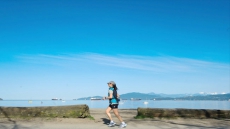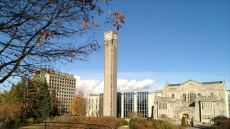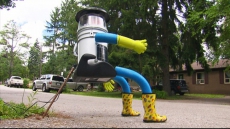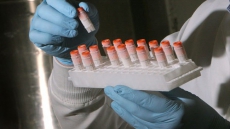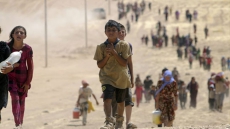TORONTO - A new broad-based study of most of Canada's grade eight students suggests the vast majority of them take a solid grasp of science with them into their high school years.
The Pan-Canadian Academic Program, administered every three years by a group representing provincial education ministers, looks at academic performance in reading, science and math among students in their final year of middle school.
During each cycle, the program puts its primary focus on one discipline, providing detailed statistics on that area while offering more cursory overviews of the other two.
Tuesday's results, which focus on science, were based on scores from 32,000 students from all 10 provinces, but none of the territories, who wrote the test in 2013.
The test found 91 per cent of students could perform at or above the expected grade level in science.
The study found average reading and math scores had risen very slightly from levels recorded in 2010.
The latest PCAP results, released by the Council of Ministers of Education Canada, mark the first time that science has come under a national microscope. Editions based on results gathered in 2007 and 2010 trained the spotlight on reading and math respectively.
Alberta Education Minister and CMEC chairman Gordon Dirks said the latest science results bode well for Canada's future.
"Science is such a very important domain to our country," Dirks said in a telephone interview. "It's a domain that is vital to education, to economic development, to the future success of Canada. So we need to ensure that our students are getting the kind of quality education in science that our country expects and requires of our various education systems."
Dirks said the test questions were not based on any one provincial curriculum. They were instead developed around elements common to all curricula, such as the characteristics of a sound scientific experiment.
Dirks said he was particularly encouraged by the lack of a gender gap on the science scores, which showed girls and boys performing equally well across the board.
Parity was not so easily achieved among the provinces.
Alberta and Ontario recorded the top science scores, with British Columbia and Newfoundland and Labrador also scoring at or above the national average.
Manitoba logged the lowest scores not only in science, but in all three disciplines covered by PCAP. The Manitoba Ministry of Education did not respond to a request for comment.
National averages in math and science rose very slightly from results recorded in 2010. The bell curved average reading score of 500 rose to 508 this year, while math scores inched up from 500 to 507. This year marked the first time that a national average score was calculated for science. The report placed that average at 500.
Quebec students in Secondary II — the equivalent of grade eight — led the pack in math scores this year, while Ontario students took top honours in reading.
Boys and girls achieved roughly equal scores in math, but girls outperformed their male peers in average national literacy scores. Dirks said that result is a red flag for the provincial governments.
"Everybody wants to do everything that we can across the country to ensure that our teaching methods in reading are going to assist boys in the early years to get a solid start, that we do everything we can to improve boys' motivation to read, that we get the right kind of reading materials that are going to appeal to them," he said.
Dirks said governments must also not rest on their laurels when it comes to the largely positive science scores, which roughly equal the math results posted in the last round of testing.
Dirks said it's easy to overlook the fact that one in 10 students are not performing up to grade level, adding teachers and governments must keep working to close the gap.
The PCAP was administered in the spring of 2013 across 1,500 schools coast to coast. The governments of the three territories declined to participate in the testing.

